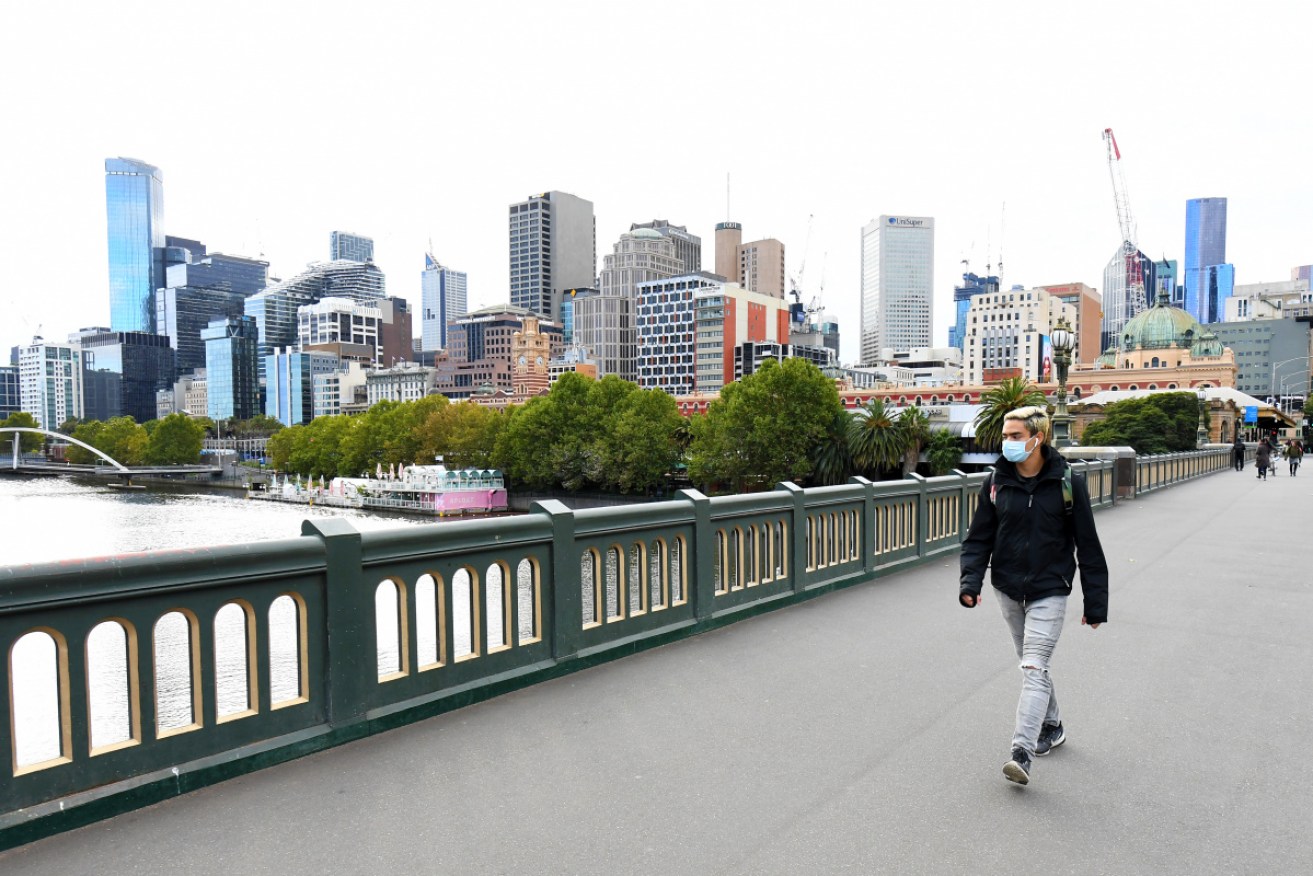‘Significant steps’: Victorian restrictions ease, five visitors allowed in homes


Groups of up to 10 people can gather for exercise, sports training, hiking and playing golf. Photo: Getty
Victorians will be allowed to have up to five people visit them in their homes as part of the state’s easing of coronavirus restrictions.
Premier Daniel Andrews has revealed a relaxation of many of the state’s strictest measures from midnight on Tuesday, including allowing people to have up to five family members or friends in their homes and allowing groups of up to 10 to gather for sport and recreation – which includes “hiking, fishing, playing golf, going for a walk, kicking a footy”.
“They should be family and friends. After all, they are the people that mean the most to us and that’s where it’s hurt, people not being able to connect with the people that are most important to them,” Mr Andrews said on Monday.
“It is a first safe, cautious appropriate step. We are not other states, we face our own unique challenges.”
The new measures will be in place for at least three weeks.
In other changes on Monday, Mr Andrews hinted for the first time at a departure from his long-held view that Victorian school students should stick with remote learning throughout term two.
“We had, for the purposes of certainty, said to parents across the state that they should plan and assume that learning from home would continue for the entirety of term two,” he said.
“We now believe that a gradual, staged return to face-to-face learning is safe, cautious and appropriate, given the testing we’ve done and the circumstances we face.”
But he gave no details, saying only that “we are very close to being able to make some significant announcements on schools”.
Tweet from @political_alert
Victoria has 1489 confirmed cases of the coronavirus, with another seven confirmed early on Monday.
One of the new infections is related to an outbreak at the Cedar Meats abattoir in Melbourne’s west, taking the total number of cases in the cluster to 76.
Mr Andrews said Victorians who could work from home should continue to do so for the rest of May.
He said it was “not appropriate” for Airbnbs or hotels to take bookings and overnight camping remained prohibited.
“We ask people to use common sense and good judgment. Things like camping won’t be allowed. We think that is appropriate, just for the three weeks. That may change in June,” he said.
The relaxation of measures means AFL players, and other professional athletes, will be able to train in groups of up to 10 from Wednesday.
The move brings Victoria into line with other states, with sporting codes able to lift training limits from two people.
The AFL Commission will meet on Monday to finalise its return-to-play plan. The AFL is eyeing a possible restart in June.
Meanwhile, Victoria will also establish rapid response squads as part of a $20 million package to tackle outbreaks of the coronavirus.
The teams will prevent, respond to and limit outbreaks as part of a major surveillance boost announced on Monday.
Health Minister Jenny Mikakos said the funding would pay for measures that will continue beyond the state’s recent testing blitz. In all, 161,000 Victorians have been tested in the past fortnight.
Testing will continue for Victorians with even the mildest of symptoms for the next month, with a target of a further 50,000 tests within a week, and 150,000 by the end of May.
“As we ease restrictions, there will be further positive coronavirus cases, and possible outbreaks,” Ms Mikakos said.
“To limit these cases and keep Victorians safe, the government has outlined its plan for a new ‘outbreak unit’ within the Department of Health and Human Services’ public health team.”
Victorian chief health officer Brett Sutton said the state’s testing blitz had uncovered “low levels” of community transmission of the coronavirus.
“We discovered 30 new cases, and in a sense that seems like a lot compared to the previous new weeks where numbers were down significantly, but those cases would have been there regardless of testing,” he said.
“We found them, ended transmission … and identified a lot more about where to focus our attention.”
He said real protection for the community was through low overall transmission.
“That’s what we achieved in Victoria. That’s why the message is for everyone about the five reasons to leave home – because that will drive transmission down and this is the most effective way to keep the most vulnerable individuals safe,” Professor Sutton said.
-with AAP








